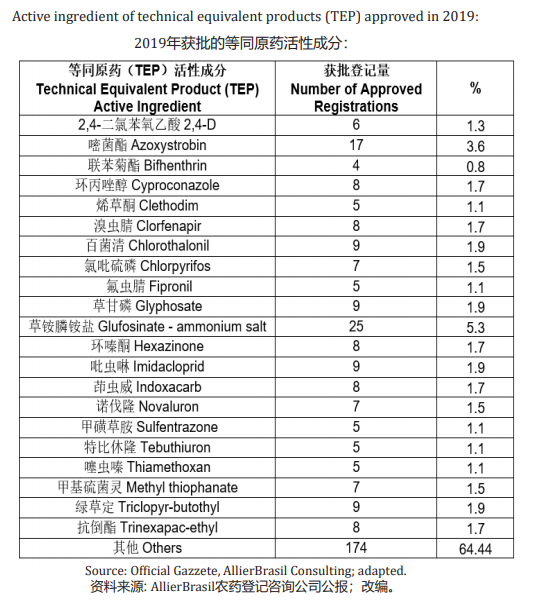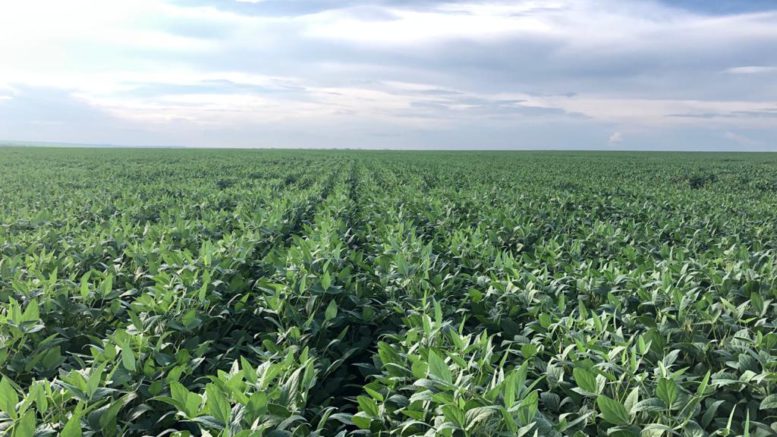
Arcticle by Flavio Hirata to AgriBrasilis. He is an agricultural engineer, specialist in pesticide registration, has an MBA, and is a partner of AllierBrasil.
2019 was the record year for approvals of pesticide registrations, with a total of 475. There were 41 approvals of biological and organic products and plant extracts (8.63%), compared to 434 registrations of technical products, technical equivalent products and their respective formulations (91.57%). The high number of approvals confirms the trend of previous years. An average of 433 registrations per year was approved in the last 3 years. It is 3 times higher than the average of 132 registrations per year in the 2013-2015 period.
The highlight of the approvals was the registration of technical equivalent products (TEP), 56.84%, followed by formulated products based on technical equivalent products (FP/TEP), 21.89%. Despite the significant increase in the number of approvals over the last 4 years, this does not necessarily mean that the time for approvals has reduced. In the case of registration of formulated products based on technical
equivalent products (FP/ TEP), also known as generic products, according to the survey carried out by AllierBrasil Consulting – company specialized in pesticide registration, in this category of products, more than 85% of the approval of the 78 registrations in 2019 required 5 years or more, and 72% of the approvals required 6 years or more.
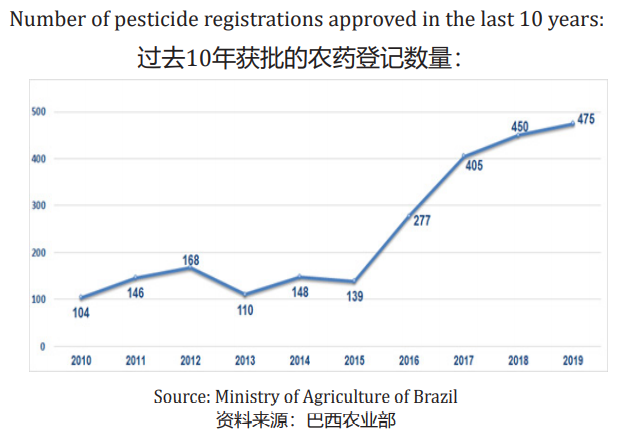
In another survey also elaborated by AllierBrasil regarding the approvals in the year 2018, 70% of the registrations of this category of products required 6 years or more. That is, statistically there is no difference in the approval time. For technical products (TC and TEP), whether new active ingredient or generic, the approvals required 5 years or more for 60% of the approvals; and 6 years or more for 44% of total approved registrations.
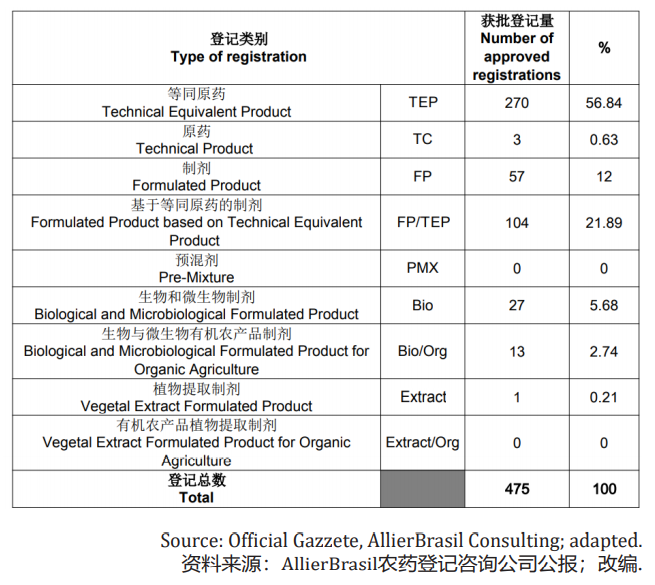
There was a reduction in the approval time specifically for technical equivalent products (TEP). In 2018, 53% of the approved cases required 6 years or more, compared to 44% in 2019. This is due to the introduction of new procedures adopted by the regulatory agencies, among which, the almost automatic evaluation and approval of applications for registrations whose files have already been approved, thus avoiding the re-evaluation of the same documents, thus shortening the time for approval, which may take a couple of months in some cases.
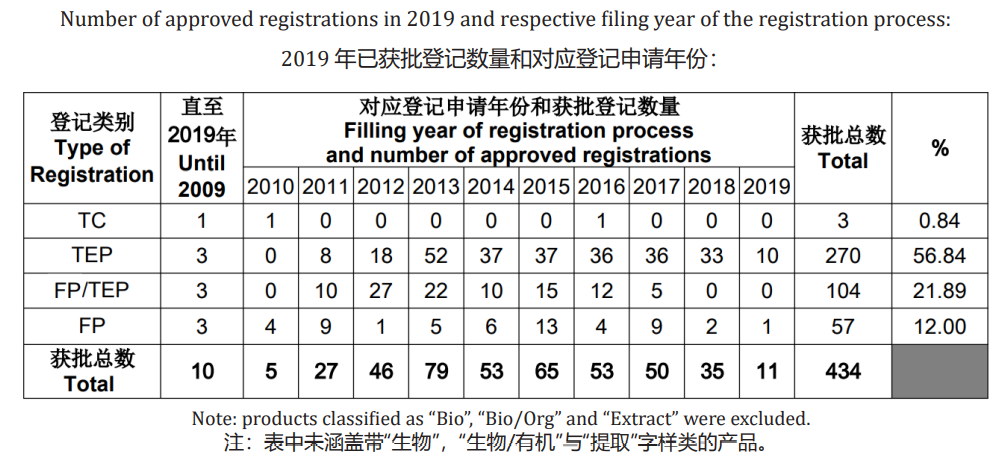
According to the survey data, only 16.35% of the formulated equivalent product registrations were approved in less than 5 years. Many of these cases were the result of legal actions against the regulatory agencies in order for the process to be evaluated within the period established by Law, within 120 days after filing the registration application.
Taking into account that in order for the registration process of a formulated product(FP) and formulated equivalent product (FP/ TEP) to be eligible for evaluation after the approval of the registrations of their respective technical products, and considering the time for the technical product (TC) or technical equivalent (TEP) to be approved, the period for the launch of formulated products (FP/TEP) may reach 10 years or more.
The record for pesticide registration approvals has been very polemic. However, contrary to what has been reported by non-specialized media, more products in the market does not mean higher consumption. This reasoning is of simple understanding, because no farmer will spend financial resources to apply products without an agronomic need. However, it is clear that with a higher number of competitors, the market tends to lower prices, and this allows farmers to choose pest and disease control practices to maximize their profits with the expectation of better harvests.
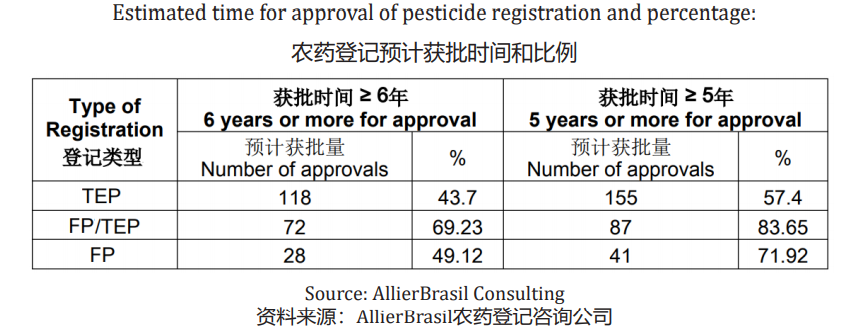
In another survey performed by AllierBrasil, another significant data are the main active ingredients that the companies of the sector are focusing on. Only 11 active ingredients in a total of 66 represent 43.7% of the registered technical equivalent products (TEP), with emphasis on glufosinate ammonium, with 9.25% and azoxystrobin with 6.29%, herbicide and fungicide respectively.
Some of these active ingredients have over 40 approved technical equivalent product (TEP) registrations, reaching almost saturation. Other active ingredients have few prospects of market access, whether due to the fact that factories have been closed, reevaluation by regulatory agencies, low agronomic effectiveness, for example. The approval of registrations considered not so commercially attractive today is due to the fact the processes were initiated a long time ago.
The ownership of the pesticide registration gives security to the player who accesses the market, as well as significantly increases the value of the company with this asset, since several companies have the registration with the purpose of adding value in the likely sale of it. It can be said that the registration of products is still the biggest barrier to market access, although other barriers have emerged in the last 10 years, such as distribution, credit, portfolio, and toxicological and environmental reevaluations.
On the other hand, laboratory costs for dossier preparation – which for a long time were limited by stratospheric values – are no longer a barrier, considering that their values have been reduced by up to 60%, depending on the laboratory. Therefore, time for registration approval is still the biggest market access barrier. Even so, the Brazilian pesticide market is still the most attractive in the world.
This is one of the reasons the global market dynamic keeps changing with focus mainly on Brazil.
